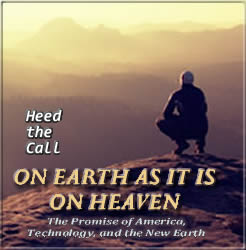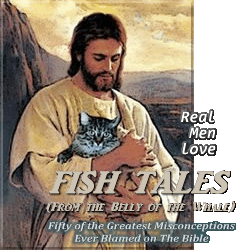To Donate or Not to Donate
That is the Question, Pt. 4 of 5
Speaking of the controlling nature of the Galatian verses, this would also mean that this sowing to the flesh doesn’t just mean not giving to the one who taught us. It would also include giving for any other reason than that which was in response to the teaching of God’s word.
How sad, then, that for the majority of Christians this constitutes the bulk of their giving. When it comes to Christian giving, most are inclined to respond to a call for giving that focuses on something tangible, as in, when they’re asked to financially support a project their church is engaged in. Examples of this kind of giving involve missionary efforts, new building projects, orphanages, food drives, and such.
Of course this doesn’t exhaust the list of giving that isn’t motivated for the sake of the teaching of God’s word itself. Quite apart from Christian giving that’s motivated by the blessing of others, there are just as many who prefer giving to establish a blessing pact for themselves, as if giving to God will invoke a return on their “investment.” In every case, though, according to Paul, any giving that isn’t a response to the teaching of God’s word turns out to be nothing but an investment in the flesh that’s destined to reap a harvest of destruction.
But imagine what would happen if a law were passed that stipulated no church could receive financial support for any other reason than teaching God’s word that elicits faith from the congregation. No more raising money to send people to the missionary fields, no more money for building a new wing for the youth ministry, no more money to support orphanages or starving babies in Third World countries, no more bingo, no more cookie bakes. Then imagine if Paul were to hear about such a shift in the way that churches solicited money. What do you think his response would be to such a change?
Well, based on Paul’s description of sowing to the Spirit as a function of Christians giving to their teachers, he’d probably wonder why the shift had ever occurred in the first place. After all, hadn’t he made it clear that the Holy Spirit only responds to those who’ve given to those who teach them God’s word?
And when we say teach, we’re not talking about just being told that Jesus loves us or that God expects us to have faith. These are all givens, naturally. No, we’re not talking about the mere dispensing of mother’s milk. We’re talking about meat and potatoes, as in, faith that comes by hearing the word of God. We’re talking about hearing how God is in control of human history, as revealed in all its glory throughout Scripture. We’re talking about a message, which by its very nature elicits confidence that when God makes a promise He’s going to keep it. Not just belief but faith that’s an action, sustained from beginning to end with confidence in those promises.
Just imagine how that would reinvigorate the message we hear from the pulpit. No more talk of love gifts or prayer cloths or blessing pacts, no more add-ons or gimmicks—just giving as a response to the teaching of God’s word. What a revolution that would spark.
Naturally, many might balk at such a notion, insisting that the God of The Bible is far bigger than those who teach a knowledge of God. What’s more, they might insist that it diminishes the power of God by localizing His blessing to mere human vessels. But before anyone tries to make such a claim, remember what we’ve learned throughout these essays.
Story Continues Below
Says Richard Price—the founder and CEO of Academia.edu—on his podcast In Depth With Academia:
Tales of Forever: The Unfolding Drama of God’s Hidden Hand in History is:
To hear Price’s book review of Tales of Forever, CLICK HERE.
To hear Kent and Zen Garcia continue their discussion concerning the implications of the 5,500-year chronology from Adam to Christ as it pertains to the faithfulness of God, CLICK BELOW.
Story Continues From Above
Remember how in the beginning, Adam and Eve were surrounded on every side by God’s presence, in respect to His word that sustained all things and the eternal life that that word bestowed. But once they forfeited that relationship, their connection with God was altered. At first, it was completely severed; and because of this new relationship, God, by divine constitution, became an outsider to His own creation. So began the history of humanity’s redemption according to the unfolding drama of the contracts by which God began to gradually restore all that Adam and Eve forfeited.
Even while the world was still dominated by sin and Satan, a world that no longer legally belonged to Him, God instituted a series of contracts with the sons of Adam—with Seth, with Enoch, with Noah, and with Shem. In providing these contracts, initiated by God, the Father, and upheld by the Word of God, the pre-incarnate Christ, they were mediated by the Spirit of God, in both time and history. But because of this mediation process, humanity, bound by time and history, couldn’t help but associate this presence of God entirely in those terms. In short, the knowledge of God and of redemption became localized in those people who were the instruments of God’s manifestation, as well as those places and artifacts that played a role in that manifestation. That meant these people, places, and artifacts took on the added dimension of representing milestones in the history of redemption.
It happened with Abraham at Hebron after receiving the vision from God concerning the divine promise that his descendants would become like the dust of the Earth. It happened when Jacob anointed the Rock of Bethel upon waking from his dream of a ladder that reached to Heaven. And it happened again when God revealed His Law so that from that point onward, Moses, Mount Sinai, the Tablets of Stone, and the Ark of the Covenant became synonymous with these manifestations. Then came the symbolism in the Tabernacle in the Wilderness, the Temple at Jerusalem, and the service of the high priest.
All this to convey the exact same thing—the word of God, the presence of God, and thus the blessing of God were made sacred in the eyes of humanity, something that had been completely discounted by Adam and Eve because of their overabundance in the Garden of Eden.
And finally, all this set the stage for the Advent of Christ Who said that from His time forward, the Temple of God would no longer be a building made of mere stone but, rather, would be one made of living stone—a holy priesthood of saints. And for the sake of this body of believers, Paul declared, concerning Christ, that:
He gave some apostles, prophets, evangelists, pastors, and teachers to equip the saints for the work of the ministry, to build up the Body of Christ until we all reach a unity in the faith and in the knowledge of the Son of God, as we mature to the full measure of the stature of Christ.1
It’s to those individuals, then, whom Paul called “gifts to the Church,”2—these apostles, prophets, evangelists, pastors, and teachers—that the God of The New Testament localized the next phase in His manifestation of the ages. And it’s to them who teach the word of God, that in turn inspires faith, without which no one can please God, that Paul advises those who’ve been taught to share materially. As it is written:
Remember that those who plant few seeds will have a small crop, while those who plant many seeds will have a large crop. You should each give, then, as you’ve decided, not out of regret or out of a sense of duty, because God loves those who give gladly.3
In doing so, two important things occur. One, by giving in response to the teaching of God’s word, and not because of any human need, the saints satisfy the demands of the divine injunction to sow to the Spirit, and reap for themselves a harvest of life everlasting. And two, they not only avoid sowing to the flesh, and thus reaping destruction, but they also enable the gift ministers of the Church to further the work of the ministry and in turn provide for such things as missionary outreaches, building projects, and care for the poor and needy. Or as Paul put it:
And God, Who supplies seed for the sower and bread to eat, will also supply you with all the seed you need, and will make it grow and produce a rich harvest from your generosity… Because this service you perform not only meets the needs of God’s people but also produces an outpouring of thanks to God.4
In the end, by giving this way, we’re not only blessed by being able to “take it with us” over there, but we’re also blessing those to whom the Church ministers to, here and now—much to the chagrin of the Evil One who’d always prefer us short-circuiting God’s way of doing things by doing them his way.






